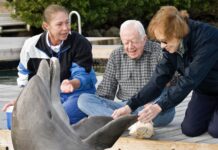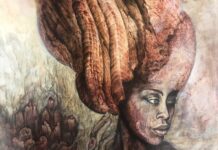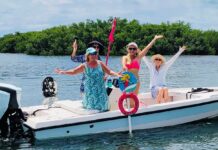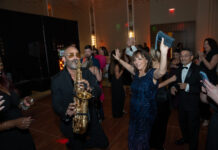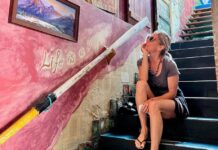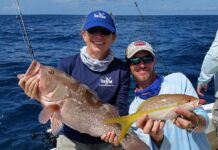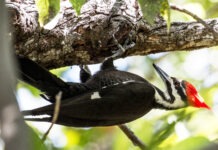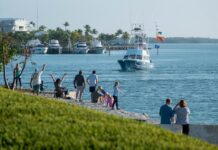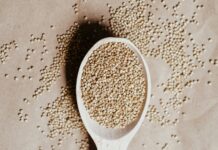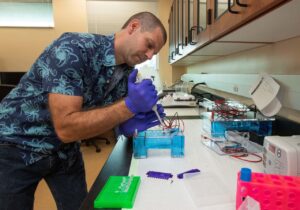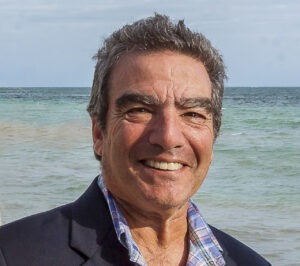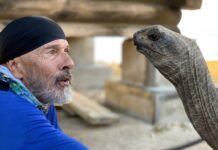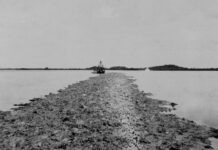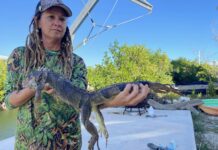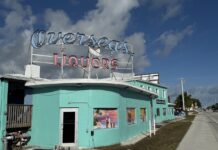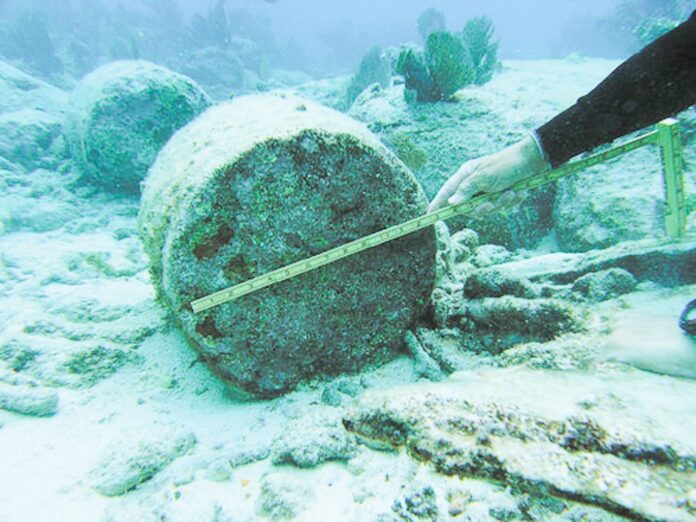
I attended graduate school in my 30s. It was a vastly different experience than what I expected, but managing expectations has been a long-standing effort. I did not attend a history program at the University of Miami; my master’s degree is in creative writing.
While in the university’s writing program, I experienced several eye-opening moments. I was excited to be surrounded by like-minded people who loved to write, and it was weird to learn that many of the people in the program did not write every day. The group often met for drinks at the Coral Gables watering hole, The Bar. Not infrequently, someone in the group would announce that they needed to get home and write something for class the next day. I spent weeks crafting the short stories I presented for the workshop.
During a workshop, the writer sits quietly while everyone around the table critiques the work and tells the writer everything wrong with it, and the bits and pieces they liked. One professor in particular, Lester Goran, routinely savaged my work. Once, when he attacked my story, he asked, “Do you think you’re God? Do you think you can just do anything you want?”
He did not treat the other writers in the program or the work they presented with the same vigor. Either I was an exceptionally sh*tty writer, or another issue was at play. So, I sat down with the department head and voiced my concerns.
At the end of the first year, all of the graduating writers performed a reading on campus. Afterward, the writers and the professors went to the T.G.I. Friday’s across from campus; we stood around the bar and drank as we talked. The department head, a poet named Fred something, was there, and we found ourselves standing next to each other at the bar. He was drinking a scotch on the rocks, and I was drinking a bottle of beer.
It wasn’t my first drink, and it wasn’t his first drink that late afternoon. He said, “No one here likes you.”
I looked at him and said, “Well, I know you don’t.”
In year two, Lester Goran, the head of the creative writing program and the professor I had complained about, sat me down in his office and said, “No one wanted you in the program. Everyone thought your writing was weird.”
And then, he said something I have never believed. “I was the only one who wanted you here.”
Also, in the last month of the two-year program, Lester did two extraordinary things.
After I turned in my final story, he left a note in my English Department mailbox. It read,
“Congratulations; this version of your story is everything the last was not.”
The following week, Lester and the class workshopped the story. Lester began the proceedings by standing up and addressing me directly. “How could you do this?” he asked. “How could you turn the previous version into this? I have been harder on you than anyone in all my years with the program, and you do this? You are the one, son. You are the one who is going to make it.”
It is a powerful memory. Lester went on to say glowing things about the story, a scene from my still as-yet unfinished novel, “Wrestling Alligators.” After graduation, when I moved to Plantation Key in 2001, I intended to finish my novel. It is now 2024; I still plan to finish it.
One thing I’ve learned since moving to the Florida Keys is that writers are as common as Key lime pie. They come to live in paradise and write their poems, plays and novels. Rarely do they move to the islands, abandon their fiction and their stories, and write about the local history — which makes me a bit of a unicorn.
While I have hardly “made it” as a writer, my love for the act has never waned, and it serves the local history well. There is a particular subject that initially piqued my interest. While researching my first book, “Snorkeling Florida” (University Press of Florida), I was introduced to Pickles Reef. The relatively shallow spur and groove reef is found southeast of Key Largo (24 59.26N/080 24.84W). Dive captains, divers and locals had several stories about the origin of the name — as did travel writers and Wikipedia: “The name comes from cement-filled pickle barrels sunk here during the Civil War.”
During the event, the load of barrels sank to the Atlantic floor, where the cement mixed with the water and hardened. Over time, the barrels’ wooden staves rotted away, leaving only the barrel-shaped forms behind. As many as 50 barrel-shaped features have been identified around the reef.
Archaeologists suspect the barrels can be dated much later than the 1860s. It has been suggested the cement had been destined for construction projects associated with the building of the Over-Sea Railway. It has also been posited that the barrels were to have been used in the construction of what would become the Red Cross or hurricane houses built in response to the 1935 Labor Day Storm.
In the end, it does not matter so much when the barrels sank at that particular reef as it does that they settled on the bottom at that site. First, the name Pickles Reef appears in historical records dating back to the late 1820s. Second, and perhaps the more exciting factoid regarding any of the thousands of individual reefs that make up the Florida Reef, the odds that a bunch of barrels that may or may not have once held pickles and sank at a reef already called Pickles Reef have to be staggering.


